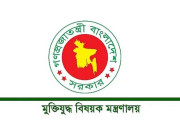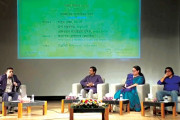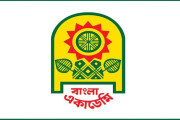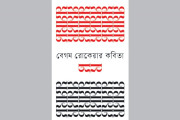।। Md. Shameem Kabir।।
Agriculture is one of the main driving forces of Bangladesh’s economy. The development and future of our country depend on agriculture. In the early 1950s, Bangladesh farmers applied only organic manures to their croplands. In 1965, the government launched the ‘Grow More Food’ campaign, providing chemical fertilisers at subsidized prices and farmers observed that chemical fertilisers can increase crop yields like magic, and therefore increased fertiliser application frequency in the 1980s. These practices are still continued.
Although chemical fertilisers are the major cause of sufficient crop production, their overuse is bringing serious challenges to the environment like polluted air, water, and soil. According to the Bangladesh Agricultural Research Institute (BARI), about 50 percent of the chemical fertilisers used in the land is being washed away through rainwater and mixed in ponds, canals, and rivers. Ultimately it destroys the quality of water-bodies.
Chemical fertilisers are not only becoming hazardous for our environment but also to humans, animals and to the microbial life forms too. Repeated applications of chemical fertiliser may result in a toxic buildup of heavy metals such as arsenic, cadmium, and uranium in the soil. These toxic heavy metals not only pollute the soil but also get accumulated in food grains, fruits and vegetables.
For example, fertilisers like triple superphosphate has trace elements like cadmium and arsenic that accumulate in plant and through food chains reach to human that may cause serious health problems kidney disease, heart disease, cancer, etc. So, it is high time that everyone understands the ill effects of using excess chemical fertilisers and take initiatives to promote the use of organic fertiliser instead of chemical fertiliser.
Organic fertilisers are primarily cost-effective, easily available from locality products than chemical fertilisers. Organic matter is the basis of soil fertility. It increases the activity of bacteria and fungi present in the soil which is beneficial for the crop as well as the organic fertilisers are renewable, biodegradable, sustainable, and environmentally friendly. Theoretically, the soil needs to contain 5% organic matter, whereas the amount of organic matter in the soil of Bangladesh is less than 2%. The soil becomes unsuitable for crop production when the organic matter content of the soil is less than 0.8%. So, we need to use more organic fertilisers by reducing the use of chemical fertilisers.
In this case, we can use dried leaves of forest to produce organic fertiliser. Shal forest can be a good source for collecting a huge number of dried leaves. Shal forest is deciduous forest. The main species of this forest is ‘shal’ or ‘gajari’ tree. The leaves of the shal tree fall from February to March every year. If we take an initiative to turn the forest litter into compost as a resource, we can produce extensive amount organic fertiliser or compost. Local communities can be involved to produce compost.
To make compost, at first, local people need to collect the dried leaves of the shal tree and store them in a 2 to 2.5meters wide and 1.5 to 2 meters height pile and the length depends on the quantity of leaves. The leaves can be stored in layers and we have to spray water on all the layers. Each layer can be coated with raw dung, which will help the decomposition process quickly. After 2 months, we have to invert the whole pile and spray water. Finally, after 3 to 4 months, the pile will be fully decomposed, and we will get the proper compost and it will be ready for use.
Compost manufacturing is very easy. There is no need of extensive labour and highly qualitative equipment. So, local people can be easily involved in this system. In this case, the forest management authority can assist them and make an opportunity for the marketing of this compost. In this way, we will be able to reduce the use of chemical fertilisers in the land, and by purchasing these composts or organic fertilisers at low cost, the farmers will be able to apply them in the land and will be benefited. Moreover, foreign exchange can be earned by exporting these organic fertilisers abroad.
At present, deciduous shal forest is mainly widespread in Gazipur, Mymensingh, Sherpur, and Tangail district. According to information from the Department of Forests in Bangladesh, the area of shal forest is about 120,000 hectares, which is 0.81% of the country’s area. Government should encourage local community near shal forests to make compost and create opportunity for marketing of compost that will be an effective and beneficial thing for environmental safety and proper cultivation.
The writer is a student of Department of Environmental Science and Resource Management (ESRM), Mawlana Bhashani Science and Technology University (MBSTU). Email: shameemkabirsk@gmail.com










































































































































































